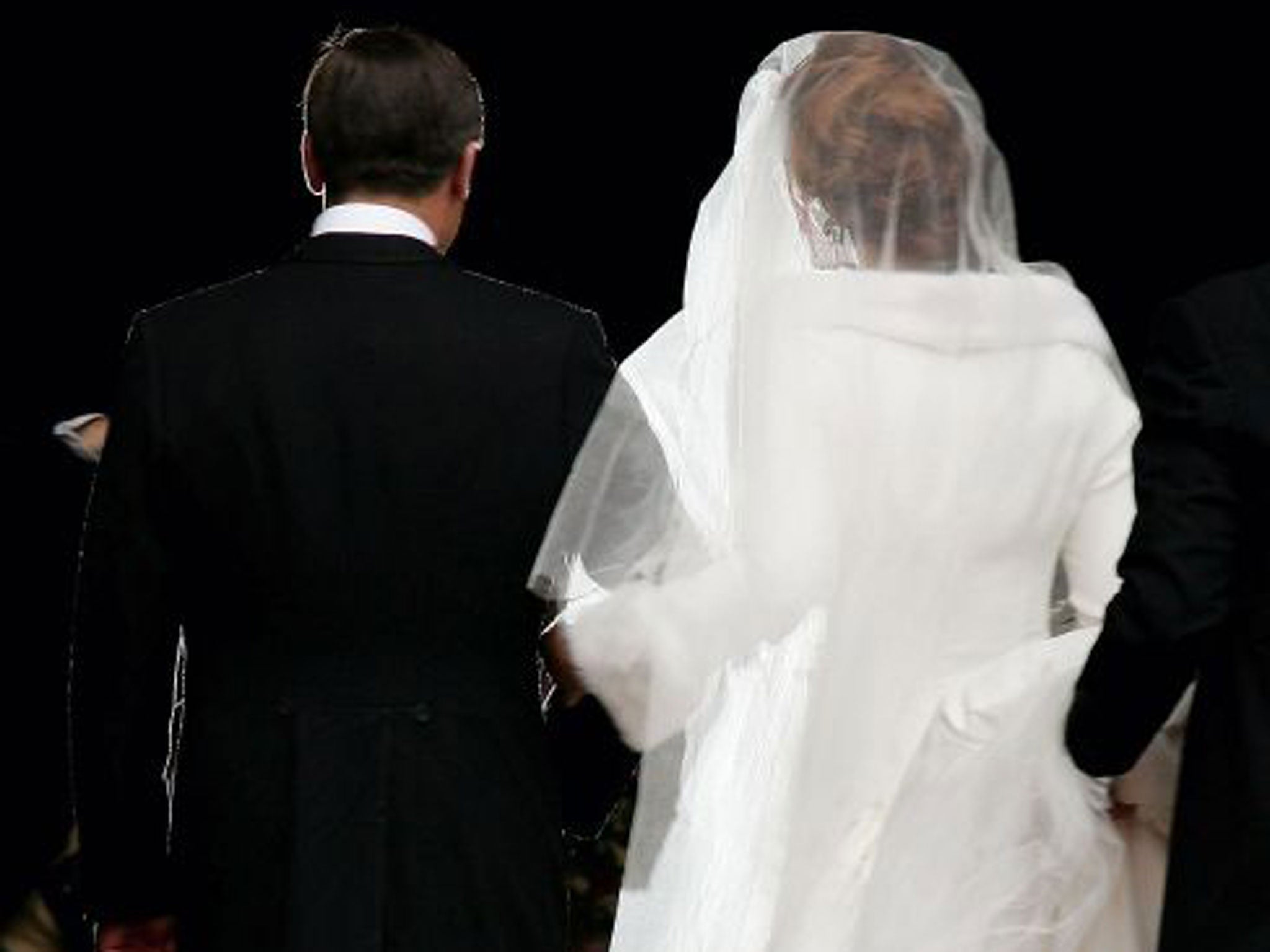Increasingly popular humanist weddings 'to overtake Church of Scotland ceremonies within two years'

Your support helps us to tell the story
From reproductive rights to climate change to Big Tech, The Independent is on the ground when the story is developing. Whether it's investigating the financials of Elon Musk's pro-Trump PAC or producing our latest documentary, 'The A Word', which shines a light on the American women fighting for reproductive rights, we know how important it is to parse out the facts from the messaging.
At such a critical moment in US history, we need reporters on the ground. Your donation allows us to keep sending journalists to speak to both sides of the story.
The Independent is trusted by Americans across the entire political spectrum. And unlike many other quality news outlets, we choose not to lock Americans out of our reporting and analysis with paywalls. We believe quality journalism should be available to everyone, paid for by those who can afford it.
Your support makes all the difference.And with this totally non-religious ring that has nothing to do with the “G” word or any of that stuff, I thee wed. These are the vows, one imagines, of the humanist wedding, demand for which is growing in an increasingly secular Britain.
The Humanist Society of Scotland has reported an increase in the number of ceremonies its celebrants are conducting, up to about 3,000 last year. It predicts they will become more popular than Church of Scotland weddings in as little as two years.
The same would be true elsewhere in the UK, the British Humanist Association (BHA) says, if only the ceremonies were legally recognised. That happened in Scotland in 2005, when there were fewer than 100 ceremonies, but the country is one of few in the world where non-religious weddings are allowed.
“It’s a great shame because people want them and there’s no real argument against them,” says Andrew Copson, chief executive of the BHA. He hopes the law will soon change. In the meantime, humanist couples may marry at a registry office and then have a humanist ceremony some time afterwards (or just have the ceremony, to hell with legal recognition). About 800 couples do this a year in England and Wales. The BHA’s growing membership, meanwhile, stands at 30,000.
But what even happens at a humanist wedding, beyond the avoidance of God talk?
Whatever you like, it turns out. You needn’t even bother with rings. There are no prescribed rituals. “Ceremonies are designed to be extremely personalised and meaningful,” Copson explains. “They’re a celebration of a relationship in front of family and friends. They’re not religious but look for meaning instead in people.”
Join our commenting forum
Join thought-provoking conversations, follow other Independent readers and see their replies
Comments